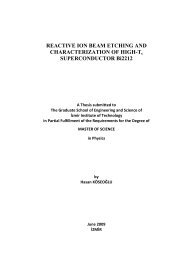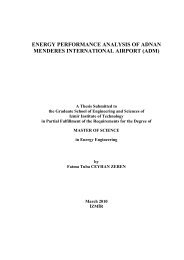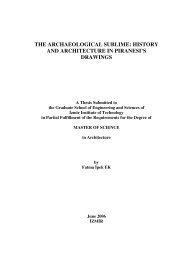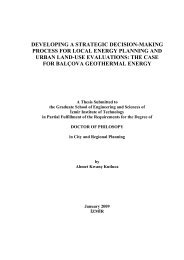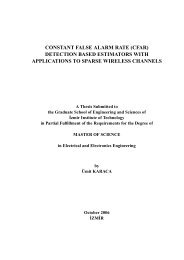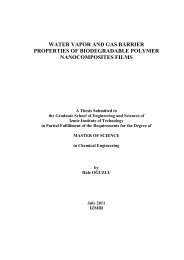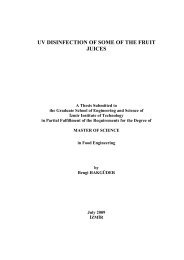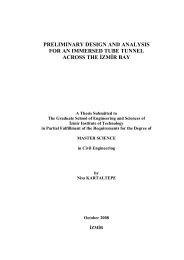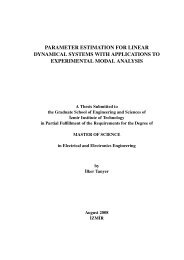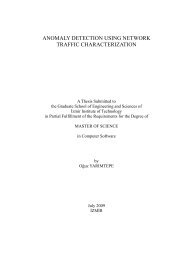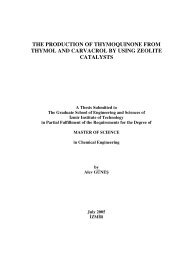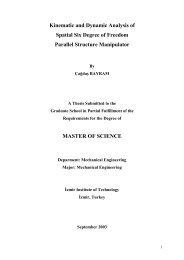a critical evaluation on the concept of justice in planning process
a critical evaluation on the concept of justice in planning process
a critical evaluation on the concept of justice in planning process
You also want an ePaper? Increase the reach of your titles
YUMPU automatically turns print PDFs into web optimized ePapers that Google loves.
2. that <strong>the</strong> liberties shall be restricted <strong>on</strong>ly as dependent up<strong>on</strong> this <strong>in</strong>equality rule,<br />
3. that benefit shall be described not as benefit <strong>of</strong> s<strong>in</strong>gle <strong>in</strong>dividuals with<strong>in</strong> <strong>the</strong><br />
understand<strong>in</strong>g <strong>of</strong> “good society” accepted by all or as <strong>the</strong> total <strong>of</strong> all <strong>the</strong>se benefits, but<br />
as “fairness” based <strong>on</strong> benefit <strong>of</strong> society.<br />
Sett<strong>in</strong>g <strong>of</strong>f from <strong>the</strong> lived events and realities <strong>in</strong> which classical liberal societies<br />
take place, Rawls has received serious critiques <strong>of</strong> his approach that is meant to revise<br />
liberalism, but all <strong>the</strong> <strong>in</strong>terpretati<strong>on</strong>s and assessments <strong>of</strong> what exists seems to be <strong>of</strong><br />
crucial importance.<br />
2.4. The Applicati<strong>on</strong> Instituti<strong>on</strong>s <strong>of</strong> Procedural Justice<br />
Discuss<strong>in</strong>g <strong>justice</strong> <strong>on</strong> <strong>the</strong> field <strong>of</strong> objective ground and applicati<strong>on</strong>, apart from<br />
<strong>the</strong> fields <strong>of</strong> <strong>the</strong>ories and ideals makes it obligatory to evaluate how <strong>the</strong> procedural<br />
(formal) <strong>justice</strong> works <strong>in</strong> <strong>the</strong> societies <strong>of</strong> today. In this sense, with<strong>in</strong> “legal <strong>justice</strong>” two<br />
questi<strong>on</strong>s ga<strong>in</strong> importance <strong>in</strong> order to understand <strong>the</strong>ir functi<strong>on</strong><strong>in</strong>g; first is about am<strong>on</strong>g<br />
whom and <strong>in</strong> what k<strong>in</strong>d <strong>of</strong> organizati<strong>on</strong> it takes place and <strong>the</strong> sec<strong>on</strong>d is up<strong>on</strong> what <strong>the</strong>y<br />
are based. The ma<strong>in</strong> answer to <strong>the</strong> first questi<strong>on</strong>, which is about by whom and how <strong>the</strong><br />
<strong>justice</strong> is organized, will be that it is organized by <strong>the</strong> state and its <strong>in</strong>stituti<strong>on</strong>s and takes<br />
place am<strong>on</strong>g <strong>in</strong>dividual-society and <strong>the</strong> state. In this sense, state as <strong>the</strong> regulator<br />
mechanism <strong>of</strong> <strong>justice</strong> and law, as <strong>the</strong> applicati<strong>on</strong> rules <strong>in</strong>dex, take <strong>the</strong>ir place am<strong>on</strong>g <strong>the</strong><br />
most important actors organiz<strong>in</strong>g <strong>the</strong> procedural <strong>justice</strong>. While talk<strong>in</strong>g about <strong>the</strong> ma<strong>in</strong><br />
functi<strong>on</strong>s <strong>of</strong> law <strong>in</strong> today’s modern state and <strong>in</strong> modern legal system, <strong>the</strong> priority is<br />
given to <strong>the</strong> organizati<strong>on</strong> <strong>of</strong> relati<strong>on</strong>s am<strong>on</strong>g <strong>in</strong>dividual-society and state and when this<br />
is regarded it is clear that <strong>the</strong> sides are society-<strong>in</strong>dividual and state. Therefore, state<br />
takes <strong>the</strong> duty <strong>of</strong> “distribut<strong>in</strong>g <strong>justice</strong>” 19 <strong>in</strong> its hands as <strong>the</strong> organiz<strong>in</strong>g mechanism <strong>of</strong><br />
<strong>justice</strong> and aims to realize this <strong>process</strong> with legal arrangements.<br />
With<strong>in</strong> this frame <strong>the</strong> questi<strong>on</strong> <strong>of</strong> what <strong>the</strong> arrangement pr<strong>in</strong>ciples am<strong>on</strong>g <strong>the</strong><br />
sides are (<strong>in</strong> o<strong>the</strong>r words <strong>the</strong> answer to <strong>the</strong> questi<strong>on</strong> <strong>of</strong> how), will be clear by what <strong>the</strong><br />
priority is given to. It is known that <strong>the</strong>re are and were arrang<strong>in</strong>g rules <strong>in</strong> every step <strong>of</strong><br />
<strong>the</strong> history and <strong>in</strong> each society. However, at <strong>the</strong> po<strong>in</strong>t where today’s “modern” periods<br />
are reached, this <strong>process</strong> represents a new era with its historical and social differences.<br />
19 (Aybay &Aybay, 2003, 210). When <strong>justice</strong> def<strong>in</strong>iti<strong>on</strong>s <strong>in</strong> <strong>the</strong> previous parts are evaluated, relati<strong>on</strong><br />
between <strong>justice</strong> and law and functi<strong>on</strong><strong>in</strong>g <strong>of</strong> state can be clearly seen. In this sense <strong>the</strong> procedural<br />
realizatior <strong>of</strong> <strong>the</strong> <strong>justice</strong> is c<strong>on</strong>sidered as state and legal order.<br />
31



